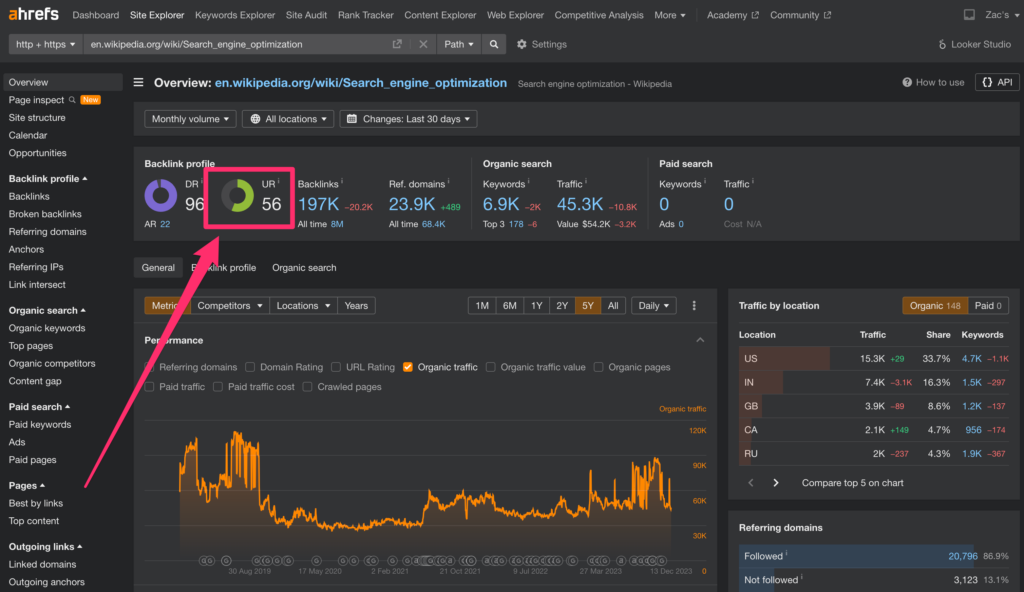URL Parameter
URL Rating (UR)
Definition
URL Rating (UR) is a metric developed by Ahrefs, a major SEO tool, which measures the strength of a webpage’s backlink profile on a logarithmic scale from 0 to 100. It is calculated by evaluating both the number and the strength of backlinks to a specific URL. A higher UR indicates that a webpage has many high DR (Domain Rating) backlinks, theoretically improving it’s chances to rank higher on the Search Engine Results Pages.
Both the DR and UR uses a logarithmic scale, which means that it’s a lot harder to go from 50 to 51, than from 10 to 11, for example.

URL Rating (UR) Relevance For SEO
While a vanity metric, UR helps SEOs understand what does it take, in terms of backlinks, to rank for specific keywords and topics. A higher UR score indicates a better reputation, which could lead to improved search engine rankings.
- UR correlates well with Google rankings, so pages with higher UR tend to rank higher in search results.
- It helps gauge the quality of a page’s link profile – pages with more high-quality backlinks have higher UR.
- It differs from Domain Rating (DR) in that UR is a page-level metric, while DR evaluates the entire domain.
URL Rating (UR) Best Practices for SEO
Improving your webpage UR involves building a strong backlink profile, and this can be accomplished through a range of SEO practices:
- Quality over Quantity: It’s better to have fewer links from authoritative, relevant sites than many links from less trusted sources. High-quality backlinks should be the focus of your link building efforts.
- Relevant Backlinks: Aim for backlinks from websites that are relevant to your site’s content or industry, as they can influence your UR more significantly.
- Diverse Link Profile: Having a variety of backlinks from different domains can protect your site’s UR from potential drop due to loss of a single link. Therefore, try to build a diverse set of backlinks.
- Monitor Your Backlinks: Regularly tracking and examining your backlink profile can help identify opportunities for improvement, as well as any potential harmful links that could negatively affect your UR.
- Track the Competition: Compare UR of your top pages to competitors to identify gaps and opportunities.
Remember, SEO is a long-term game and improving URL Rating doesn’t come overnight. Consistent effort, patience, and following these best practices can definitely contribute to increasing your UR over time.
Unlinked Mention
